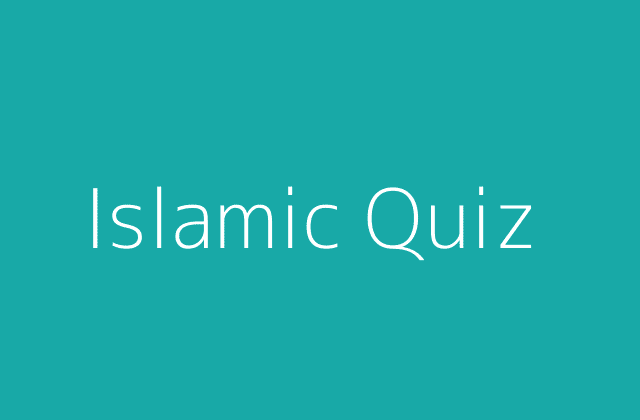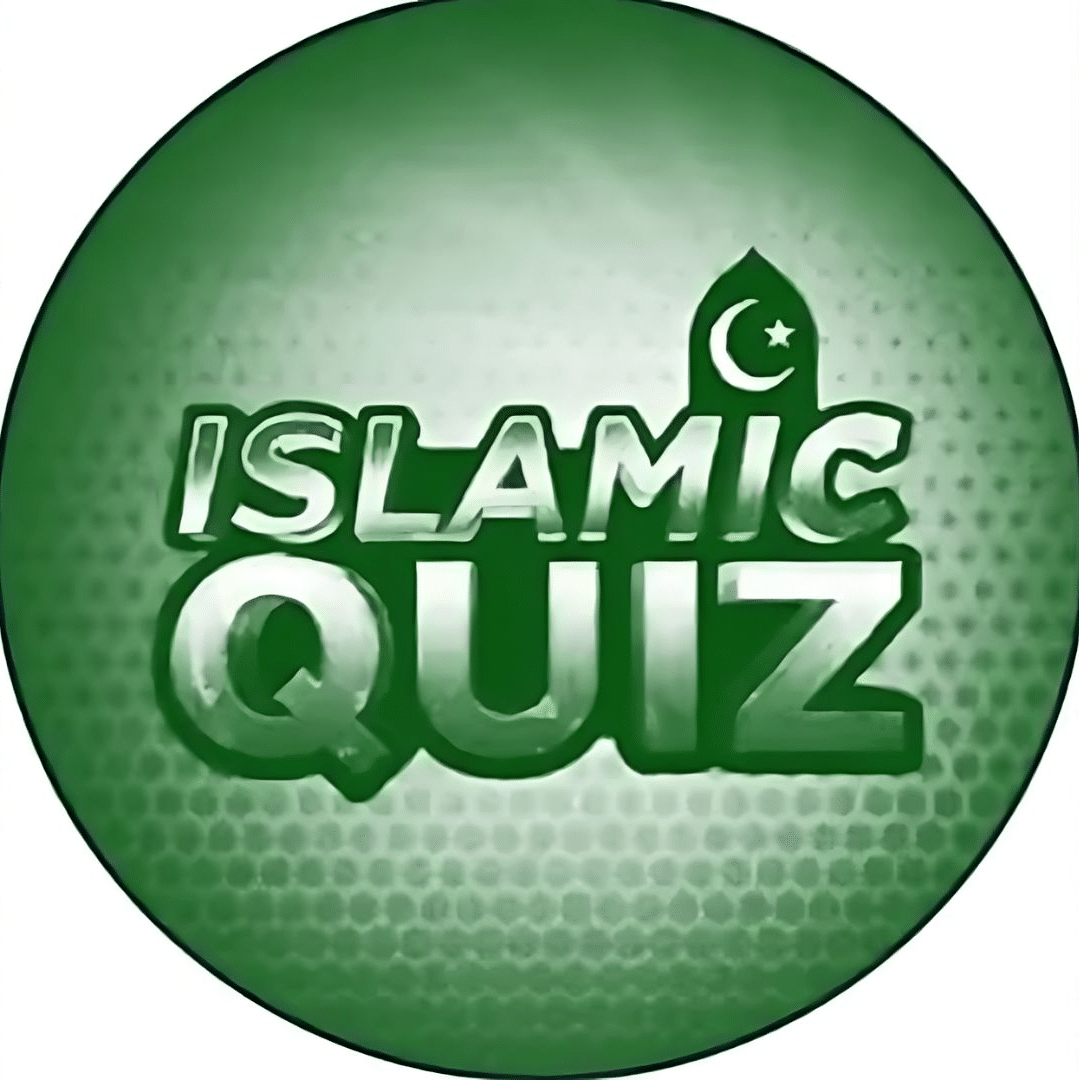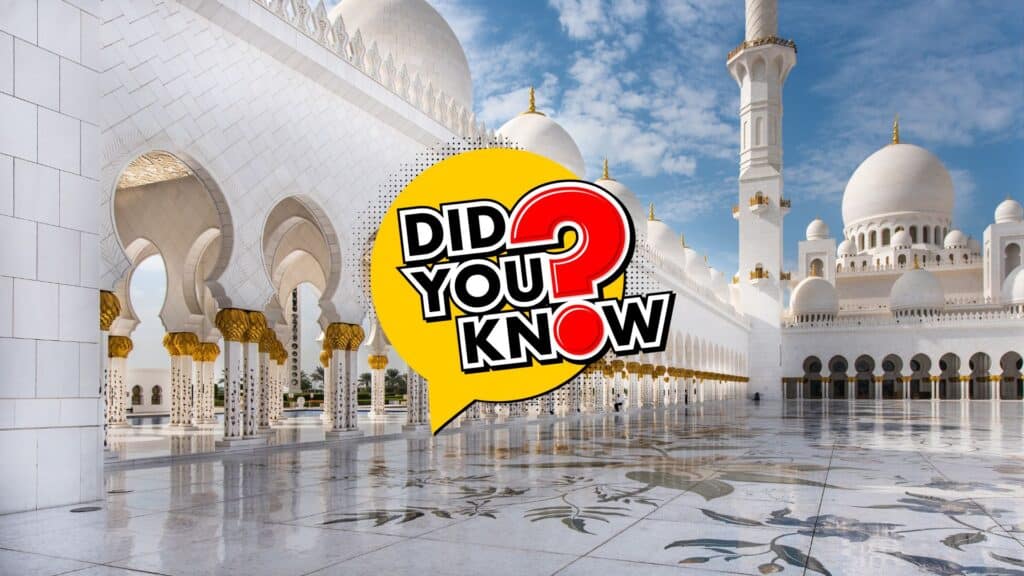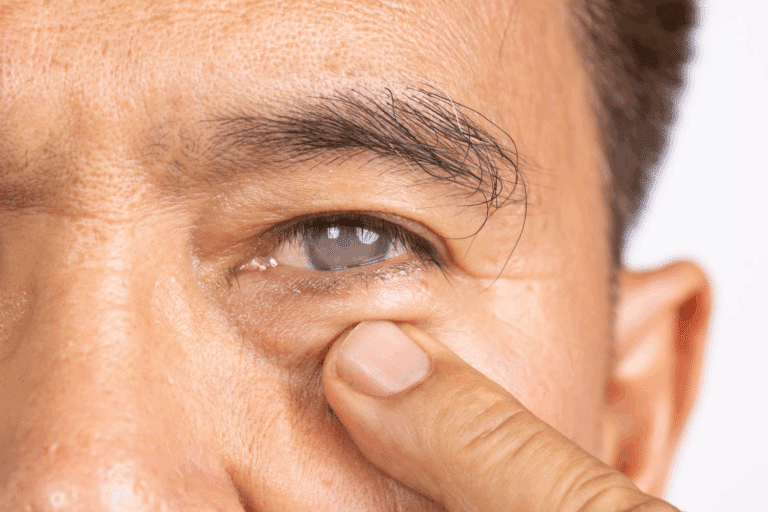Are you tired of feeling left out at parties when Islamic trivia comes up?
Do you find yourself stumbling over basic facts about the world’s second-largest religion? Well, you’re not alone.
Most people lack basic knowledge about Islam’s rich history and fascinating traditions. But what if I told you there’s a treasure trove of mind-blowing Islamic trivia that will amaze your friends?
Get ready to unlock a new world of surprises – from the world’s largest mosque to the math genius who became a famous Islamic scholar.
Prepare to have your perceptions shattered!
Best Islamic trivia Questions & Answers to Know

-
What was the name of the first Islamic state established by Prophet Muhammad? – The Medina Caliphate
-
Which Islamic caliph is known as the “Rightly Guided Caliph”? – Abu Bakr
-
Which battle is considered a major turning point in the spread of Islam outside the Arabian Peninsula? – The Battle of Yarmouk
-
Which Islamic empire ruled over large parts of the Middle East, North Africa, and Spain for over 600 years? – The Ottoman Empire
-
Who is considered the “Golden Age of Islam” and why? – Caliph Harun al-Rashid, due to the remarkable advancements in science, mathematics, and culture during his reign.
-
Which Islamic scholar made significant contributions to the field of algebra and is considered the “Father of Algebra”? – Al-Khwarizmi
-
Which Muslim astronomer made significant contributions to the understanding of planetary motion and the development of the astrolabe? – Al-Biruni
-
Which Islamic thinker is known as the “Father of Modern Optics” for his pioneering work in the field of optics? – Ibn al-Haytham
-
Which Caliph is known for establishing the Umayyad Caliphate, the first hereditary Muslim dynasty? – Muawiyah I
-
Which Islamic scholar is considered the founder of the Shafi’i school of Islamic jurisprudence? – Al-Shafi’i
-
Which Muslim mathematician made significant contributions to the field of algebra, including the concept of the quadratic equation? – Omar Khayyam
-
Which Islamic empire is known for its patronage of arts, literature, and scientific advancements during the Abbasid Caliphate? – The Abbasid Caliphate
-
Who was the first caliph to establish a permanent standing army in the early Islamic state? – Caliph Mu’awiyah I
-
Which Islamic scholar is known for his influential medical treatise, “The Canon of Medicine,” which was a standard text in European universities for centuries? – Avicenna (Ibn Sina)
-
Which Islamic empire is recognized for its extensive road network, postal system, and administrative reforms during the reign of Suleiman the Magnificent? – The Ottoman Empire
-
Which Muslim mathematician and astronomer made significant contributions to the understanding of planetary motion and the development of the astrolabe? – Al-Biruni
-
Which Islamic philosopher is known for his influential work on the relationship between faith and reason, and is considered a pioneer of Islamic Neoplatonism? – Al-Farabi
-
Which Islamic ruler is credited with the establishment of the world’s first university, the University of Al-Karaouine, in Fez, Morocco? – Fatima al-Fihri
-
Which Muslim polymath is known for his inventions in the field of engineering, including the development of the mechanical clock and various automation devices? – Al-Jazari
-
Which Islamic civilization is renowned for its advancements in the field of astronomy, including the development of the astrolabe and the accurate mapping of the stars? – The Abbasid Caliphate
-
Which Muslim philosopher and scientist is considered a pioneer in the field of optics and is known for his groundbreaking work on the nature of light and vision? – Ibn al-Haytham
-
Which Islamic ruler is credited with the establishment of the Dar al-Hikma, a renowned center of learning and translation during the Golden Age of Islam? – Caliph al-Ma’mun
-
Which Muslim scholar is recognized for his comprehensive work on Islamic jurisprudence and is considered a highly influential figure in Sunni Islam? – Al-Nawawi
-
Which Islamic empire is known for its patronage of arts, architecture, and literature, particularly during the reign of Akbar the Great? – The Mughal Empire
-
Which Muslim mathematician and astronomer made significant contributions to the field of trigonometry and the development of geometric devices used to explain planetary motion? – Nasir al-Din al-Tusi
-
What is the name of the iconic Islamic architectural style characterized by domes, arches, and intricate geometric patterns? – Moorish architecture
-
Which Islamic festival celebrates the end of the holy month of Ramadan? – Eid al-Fitr
-
What is the name of the Islamic holy text recited during the five daily prayers? – The Quran
-
Which Islamic language is considered the liturgical language of the religion and has had a significant influence on various world languages? – Arabic
-
Who is the renowned Persian poet known for his masterpiece, the “Shahnameh,” an epic poem that tells the history of ancient Persia? – Ferdowsi
-
What is the name of the traditional Islamic headscarf worn by many Muslim women? – Hijab
-
Which Islamic architectural marvel is known for its stunning blue tiles and is considered one of the most beautiful mosques in the world? – The Blue Mosque in Istanbul, Turkey
-
Which Islamic festival commemorates the story of Prophet Ibrahim’s willingness to sacrifice his son? – Eid al-Adha
-
What is the name of the Islamic crescent moon symbol that is widely recognized as a symbol of Islam? – The Hilal
-
Which Islamic country is known for its unique and colorful tile work, particularly in the decoration of mosques and other historical buildings? – Iran (Persia)
-
Which Muslim scholar is credited with the invention of the modern toothbrush, using a twig from the Miswak tree? – Al-Masi
-
Which Islamic festival celebrates the birth of Prophet Muhammad and is observed by Muslims worldwide? – Mawlid
-
What is the name of the Islamic practice of giving a certain percentage of one’s wealth to charity, as one of the Five Pillars of Islam? – Zakat
-
Which Islamic city is known for its intricate and mesmerizing patterns of Islamic calligraphy, which can be seen in its architecture and artwork? – Isfahan, Iran
-
Which Islamic tradition involves the gathering of families and communities to celebrate the breaking of the fast during Ramadan? – Iftar
-
What is the name of the Islamic architectural style characterized by domed structures, pointed arches, and intricate geometric ornamentation? – Seljuk architecture
-
Which Islamic festival is celebrated to commemorate the journey of Prophet Muhammad from Mecca to Medina, known as the Hijra? – Mawlid al-Nabi
-
What is the name of the traditional Islamic musical instrument with a distinctive pear-shaped body and long neck? – Oud
-
Which Islamic empire is renowned for its patronage of the arts, particularly the development of the Persian miniature painting style? – The Safavid Empire
-
What is the name of the traditional Islamic dress for men, consisting of a long robe and a headcover? – Thobe and Thoub
-
What are the Five Pillars of Islam? – Shahada (declaration of faith), Salat (daily prayers), Zakat (charity), Sawm (fasting during Ramadan), and Hajj (pilgrimage to Mecca).
-
What is the name of the holy book in Islam? – The Quran
-
Who is considered the final prophet in the Abrahamic religions according to Islamic belief? – Prophet Muhammad
-
What is the name of the collection of sayings and teachings of Prophet Muhammad? – Hadith
-
What are the two main branches of Islam? – Sunni and Shia
-
What is the name of the Islamic belief that there is only one God (Allah) who is supreme and all-powerful? – Tawhid
-
Which Islamic sect believes in the spiritual and political leadership of the Imam, a direct descendant of Prophet Muhammad? – Shia Islam
-
What is the name of the Islamic prayer ritual performed five times a day? – Salat
-
What is the name of the Islamic holy month during which Muslims fast from sunrise to sunset? – Ramadan
-
What is the name of the Islamic belief in the predestination of all events by Allah? – Qadar
-
Which Islamic sect is known for its emphasis on the spiritual and mystical aspects of the religion? – Sufism
-
What is the name of the Islamic concept of charity and social welfare, known as one of the Five Pillars of Islam? – Zakat
-
What is the name of the Islamic belief in the divine attributes of Allah, such as omnipotence, omniscience, and mercy? – Asma’ al-Husna
-
What is the name of the Islamic belief in the existence of angels and their role in the divine plan? – Malaikah
-
What is the name of the Islamic belief in the afterlife and the Day of Judgment? – Akhirah
-
Which city is considered the holiest site in Islam and the birthplace of Prophet Muhammad? – Mecca
-
Which city is the second holiest site in Islam and the burial place of Prophet Muhammad? – Medina
-
Which country has the largest Muslim population in the world? – Indonesia
-
Which Islamic empire ruled over the Iberian Peninsula (modern-day Spain and Portugal) for nearly 800 years? – The Umayyad Caliphate
-
Which Islamic civilization established the city of Baghdad, known as the “City of Peace,” and made it the capital of the Abbasid Caliphate? – The Abbasid Caliphate
-
Which North African country is home to the Moroccan city of Fez, known for its well-preserved medieval Islamic architecture? – Morocco
-
Which Central Asian country has a significant Muslim population and is known for its Islamic architecture, such as the Registan in Samarkand? – Uzbekistan
-
Which Middle Eastern country is home to the Dome of the Rock, one of the most iconic Islamic holy sites in Jerusalem? – Palestine
-
Which Southeast Asian country is known for its vibrant and diverse Islamic culture, including the iconic Masjid Nabawi mosque in Aceh? – Indonesia
-
Which West African country is known for its ancient Islamic scholars and centers of learning, such as the University of Sankore in Timbuktu? – Mali
-
Which South Asian country has a significant Shia Muslim population and is home to the Shrine of Imam Reza in Mashhad? – Iran
-
Which Southeast European country is known for its Ottoman-era mosques and the Blue Mosque in its capital, Istanbul? – Turkey
-
Which North African country is renowned for its Islamic architecture, including the Great Mosque of Kairouan and the Zaytuna Mosque in Tunis? – Tunisia
-
Which Central Asian country is known for its Islamic heritage, including the Hazrat Sultan Mosque in Nur-Sultan and the Gur-e Amir mausoleum in Samarkand? – Kazakhstan
-
Which Middle Eastern country is home to the Masjid al-Haram, the largest and holiest mosque in the world, located in Mecca? – Saudi Arabia
-
Which Muslim mathematician is credited with the development of the decimal number system and the concept of the algorithm? – Al-Khwarizmi
-
Who is considered the “Father of Modern Ophthalmology” for his pioneering work in the field of eye surgery and the treatment of eye diseases? – Al-Mawsili
-
Which Muslim physician is known as the “Father of Modern Surgery” for his groundbreaking work in the field of surgery and his influential medical treatise, “The Canon of Medicine”? – Avicenna (Ibn Sina)
-
Which Muslim polymath is credited with the invention of the mechanical clock and is considered a pioneer in the field of robotics? – Al-Jazari
-
Which Muslim mathematician made important contributions to the field of algebra, including the concept of the quadratic equation and the binomial theorem? – Omar Khayyam
-
What is the name of the Islamic legal and moral code that governs various aspects of Muslim life? – Sharia law
-
Which Muslim leader is known for establishing the first Islamic welfare state, providing social services and assistance to the poor and needy? – Caliph Umar ibn Al-Khattab
-
Which Muslim woman is considered a pioneer in the field of Islamic jurisprudence and is known for her contributions to Islamic legal scholarship? – Aishah bint Abi Bakr
-
Which Islamic empire is renowned for its system of bureaucracy and administration, which influenced the development of modern governmental structures? – The Abbasid Caliphate
-
Which Muslim queen is renowned for her military leadership and her role in the expansion of the Ottoman Empire? – Safiye Sultan

-
What is the name of the Islamic tradition involving the use of henna, a natural dye, to decorate the hands and feet of women during special occasions? – Mehndi
-
What is the name of the traditional Islamic musical instrument with a distinctive pear-shaped body and long neck? – Oud
-
What is the name of the traditional Islamic dress for men, consisting of a long robe and a headcover? – Thobe and Thoub
-
What is the name of the traditional Islamic headpiece worn by some Muslim women that covers the head and neck, but leaves the face exposed? – Khimar
-
Which Islamic scholar is known for his contributions to the field of optics and his pioneering work on the nature of light and vision? – Ibn al-Haytham
-
Which Islamic empire is renowned for its patronage of science, mathematics, and philosophy during the Golden Age of Islam? – The Abbasid Caliphate
-
What is the name of the Islamic practice of reciting the Quran during the holy month of Ramadan? – Taraweeh
-
What is the name of the Islamic belief in the existence of angels and their role in the divine plan? – Malaikah
-
Which Islamic scholar is known for his comprehensive work on Islamic jurisprudence and is considered a highly influential figure in Sunni Islam? – Al-Shafi’i
-
Which Islamic sect is known for its emphasis on the spiritual and mystical aspects of the religion? – Sufism
-
What is the name of the Islamic concept of charity and social welfare, known as one of the Five Pillars of Islam? – Zakat
-
What is the name of the Islamic belief in the divine attributes of Allah, such as omnipotence, omniscience, and mercy? – Asma’ al-Husna
-
Which Islamic ruler is credited with the establishment of the Umayyad Caliphate, the first hereditary Muslim dynasty? – Muawiyah I
-
Which Islamic scholar is considered the founder of the Shafi’i school of Islamic jurisprudence? – Al-Shafi’i
-
Which Islamic empire is known for its patronage of the arts, literature, and scientific advancements during the Abbasid Caliphate? – The Abbasid Caliphate
-
Which Islamic ruler is credited with the establishment of the world’s first university, the University of Al-Karaouine, in Fez, Morocco? – Fatima al-Fihri
-
Which Islamic philosopher is known for his influential work on the relationship between faith and reason, and is considered a pioneer of Islamic Neoplatonism? – Al-Farabi
-
Which Islamic ruler is recognized for his patronage of the arts, architecture, and literature during the Mughal Empire? – Akbar the Great
-
Which Muslim scholar is known for his comprehensive work on Islamic jurisprudence and is considered a highly influential figure in Sunni Islam? – Al-Nawawi
-
Which Islamic empire is renowned for its administrative reforms and the establishment of a permanent standing army during the reign of Suleiman the Magnificent? – The Ottoman Empire
-
Which Muslim philosopher and scientist is recognized for his groundbreaking work on the nature of light and vision, and is considered a pioneer in the field of optics? – Ibn al-Haytham
-
Which Islamic ruler is credited with the establishment of the Dar al-Hikma, a renowned center of learning and translation during the Golden Age of Islam? – Caliph al-Ma’mun
-
Which Islamic architectural style is characterized by intricate geometric patterns, arabesque designs, and the extensive use of calligraphy? – Moorish architecture
-
Which Islamic tradition involves the gathering of families and communities to celebrate the breaking of the fast during Ramadan? – Iftar
-
Which Islamic architectural style is known for its use of domed structures, pointed arches, and intricate geometric ornamentation? – Seljuk architecture
-
Which Islamic festival is celebrated to commemorate the journey of Prophet Muhammad from Mecca to Medina, known as the Hijra? – Mawlid al-Nabi
-
Which Islamic empire is renowned for its patronage of the arts, particularly the development of the Persian miniature painting style? – The Safavid Empire
-
What is the name of the Islamic belief in the afterlife and the Day of Judgment? – Akhirah
-
Which Muslim mathematician and philosopher made important contributions to the field of algebra, including the concept of the quadratic equation and the binomial theorem? – Omar Khayyam
-
Which Islamic ruler is recognized for his patronage of the arts, architecture, and literature during the Mughal Empire? – Akbar the Great
-
Which Muslim scholar is known for his comprehensive work on Islamic jurisprudence and is considered a highly influential figure in Sunni Islam? – Al-Nawawi
-
Which Islamic empire is renowned for its administrative reforms and the establishment of a permanent standing army during the reign of Suleiman the Magnificent? – The Ottoman Empire
-
Which Muslim philosopher and scientist is recognized for his groundbreaking work on the nature of light and vision, and is considered a pioneer in the field of optics? – Ibn al-Haytham
-
Which Islamic ruler is credited with the establishment of the Dar al-Hikma, a renowned center of learning and translation during the Golden Age of Islam? – Caliph al-Ma’mun
-
Which Islamic architectural style is characterized by intricate geometric patterns, arabesque designs, and the extensive use of calligraphy? – Moorish architecture
-
Which Islamic tradition involves the gathering of families and communities to celebrate the breaking of the fast during Ramadan? – Iftar
-
Which Islamic architectural style is known for its use of domed structures, pointed arches, and intricate geometric ornamentation? – Seljuk architecture
-
Which Islamic empire was known for its relatively tolerant and pluralistic approach to governance, allowing religious and ethnic minorities to thrive? – The Umayyad Caliphate
-
Which Muslim scholar is recognized for his comprehensive work on Islamic jurisprudence and is considered a highly influential figure in Sunni Islam? – Al-Nawawi
-
Which Islamic empire is renowned for its system of bureaucracy and administration, which influenced the development of modern governmental structures? – The Abbasid Caliphate
-
Which Muslim queen is renowned for her military leadership and her role in the expansion of the Ottoman Empire? – Safiye Sultan
-
Which Islamic scholar is credited with the establishment of the first permanent standing army in the early Islamic state? – Caliph Mu’awiyah I
-
Which Islamic architectural style is characterized by domed structures, pointed arches, and intricate geometric ornamentation? – Seljuk architecture
-
Which Islamic festival is celebrated to commemorate the journey of Prophet Muhammad from Mecca to Medina, known as the Hijra? – Mawlid al-Nabi
-
Which Islamic empire is renowned for its patronage of the arts, particularly the development of the Persian miniature painting style? – The Safavid Empire
-
What is the name of the Islamic belief in the afterlife and the Day of Judgment? – Akhirah
-
Which Muslim mathematician and philosopher made important contributions to the field of algebra, including the concept of the quadratic equation and the binomial theorem? – Omar Khayyam
-
Which Islamic ruler is recognized for his patronage of the arts, architecture, and literature during the Mughal Empire? – Akbar the Great
-
Which Islamic empire is renowned for its administrative reforms and the establishment of a permanent standing army during the reign of Suleiman the Magnificent? – The Ottoman Empire
-
Which Muslim philosopher and scientist is recognized for his groundbreaking work on the nature of light and vision, and is considered a pioneer in the field of optics? – Ibn al-Haytham
-
Which Islamic ruler is credited with the establishment of the Dar al-Hikma, a renowned center of learning and translation during the Golden Age of Islam? – Caliph al-Ma’mun
-
Which Islamic architectural style is characterized by intricate geometric patterns, arabesque designs, and the extensive use of calligraphy? – Moorish architecture
-
Which Islamic tradition involves the gathering of families and communities to celebrate the breaking of the fast during Ramadan? – Iftar
-
Which Islamic architectural style is known for its use of domed structures, pointed arches, and intricate geometric ornamentation? – Seljuk architecture
-
Which Islamic empire was known for its relatively tolerant and pluralistic approach to governance, allowing religious and ethnic minorities to thrive? – The Umayyad Caliphate
-
Which Muslim scholar is recognized for his comprehensive work on Islamic jurisprudence and is considered a highly influential figure in Sunni Islam? – Al-Nawawi
-
Which Islamic empire is renowned for its system of bureaucracy and administration, which influenced the development of modern governmental structures? – The Abbasid Caliphate
-
Which Muslim queen is renowned for her military leadership and her role in the expansion of the Ottoman Empire? – Safiye Sultan
-
Which Islamic scholar is credited with the establishment of the first permanent standing army in the early Islamic state? – Caliph Mu’awiyah I
-
Which Islamic architectural style is characterized by domed structures, pointed arches, and intricate geometric ornamentation? – Seljuk architecture
-
Which Islamic festival is celebrated to commemorate the journey of Prophet Muhammad from Mecca to Medina, known as the Hijra? – Mawlid al-Nabi
-
Which Islamic empire is renowned for its patronage of the arts, particularly the development of the Persian miniature painting style? – The Safavid Empire
-
What is the name of the Islamic belief in the afterlife and the Day of Judgment? – Akhirah
-
Which Muslim mathematician and philosopher made important contributions to the field of algebra, including the concept of the quadratic equation and the binomial theorem? – Omar Khayyam
-
Which Islamic ruler is recognized for his patronage of the arts, architecture, and literature during the Mughal Empire? – Akbar the Great
-
Which Islamic empire is renowned for its administrative reforms and the establishment of a permanent standing army during the reign of Suleiman the Magnificent? – The Ottoman Empire
-
Which Muslim philosopher and scientist is recognized for his groundbreaking work on the nature of light and vision, and is considered a pioneer in the field of optics? – Ibn al-Haytham
-
Which Islamic ruler is credited with the establishment of the Dar al-Hikma, a renowned center of learning and translation during the Golden Age of Islam? – Caliph al-Ma’mun
-
Which Islamic architectural style is characterized by intricate geometric patterns, arabesque designs, and the extensive use of calligraphy? – Moorish architecture
-
Which Islamic tradition involves the gathering of families and communities to celebrate the breaking of the fast during Ramadan? – Iftar
-
Which Islamic architectural style is known for its use of domed structures, pointed arches, and intricate geometric ornamentation? – Seljuk architecture
-
Which Islamic empire was known for its relatively tolerant and pluralistic approach to governance, allowing religious and ethnic minorities to thrive? – The Umayyad Caliphate
-
Which Muslim scholar is recognized for his comprehensive work on Islamic jurisprudence and is considered a highly influential figure in Sunni Islam? – Al-Nawawi
-
Which Islamic empire is renowned for its system of bureaucracy and administration, which influenced the development of modern governmental structures? – The Abbasid Caliphate
-
Which Muslim queen is renowned for her military leadership and her role in the expansion of the Ottoman Empire? – Safiye Sultan
-
Which Islamic scholar is credited with the establishment of the first permanent standing army in the early Islamic state? – Caliph Mu’awiyah I
-
Which Islamic architectural style is characterized by domed structures, pointed arches, and intricate geometric ornamentation? – Seljuk architecture
-
Which Islamic festival is celebrated to commemorate the journey of Prophet Muhammad from Mecca to Medina, known as the Hijra? – Mawlid al-Nabi
-
Which Islamic empire is renowned for its patronage of the arts, particularly the development of the Persian miniature painting style? – The Safavid Empire
-
What is the name of the Islamic belief in the afterlife and the Day of Judgment? – Akhirah
-
Which Muslim mathematician and philosopher made important contributions to the field of algebra, including the concept of the quadratic equation and the binomial theorem? – Omar Khayyam
-
Which Islamic ruler is recognized for his patronage of the arts, architecture, and literature during the Mughal Empire? – Akbar the Great
-
Which Islamic empire is renowned for its administrative reforms and the establishment of a permanent standing army during the reign of Suleiman the Magnificent? – The Ottoman Empire
-
Which Muslim philosopher and scientist is recognized for his groundbreaking work on the nature of light and vision, and is considered a pioneer in the field of optics? – Ibn al-Haytham
-
Which Islamic ruler is credited with the establishment of the Dar al-Hikma, a renowned center of learning and translation during the Golden Age of Islam? – Caliph al-Ma’mun
-
Which Islamic architectural style is characterized by intricate geometric patterns, arabesque designs, and the extensive use of calligraphy? – Moorish architecture
-
Which Islamic tradition involves the gathering of families and communities to celebrate the breaking of the fast during Ramadan? – Iftar
-
Which Islamic architectural style is known for its use of domed structures, pointed arches, and intricate geometric ornamentation? – Seljuk architecture
-
Which Islamic empire was known for its relatively tolerant and pluralistic approach to governance, allowing religious and ethnic minorities to thrive? – The Umayyad Caliphate
-
Which Muslim scholar is recognized for his comprehensive work on Islamic jurisprudence and is considered a highly influential figure in Sunni Islam? – Al-Nawawi
Conclusion
As you’ve just learned, the vast and interesting world of Islamic history, culture, and contributions is full of surprises that will amaze you.
From groundbreaking scientific advancements to captivating architectural wonders, this religion has profoundly shaped our global civilization.
So what’s next? Don’t just keep this newfound knowledge to yourself – share these remarkable Islamic trivia facts with your friends and family.
Spark their curiosity and interest in exploring the rich tapestry of Islamic heritage.
Who knows, you might even inspire them to dive deeper and uncover even more mind-blowing surprises about the second-largest religion in the world.
The journey of discovery has only just begun!


















